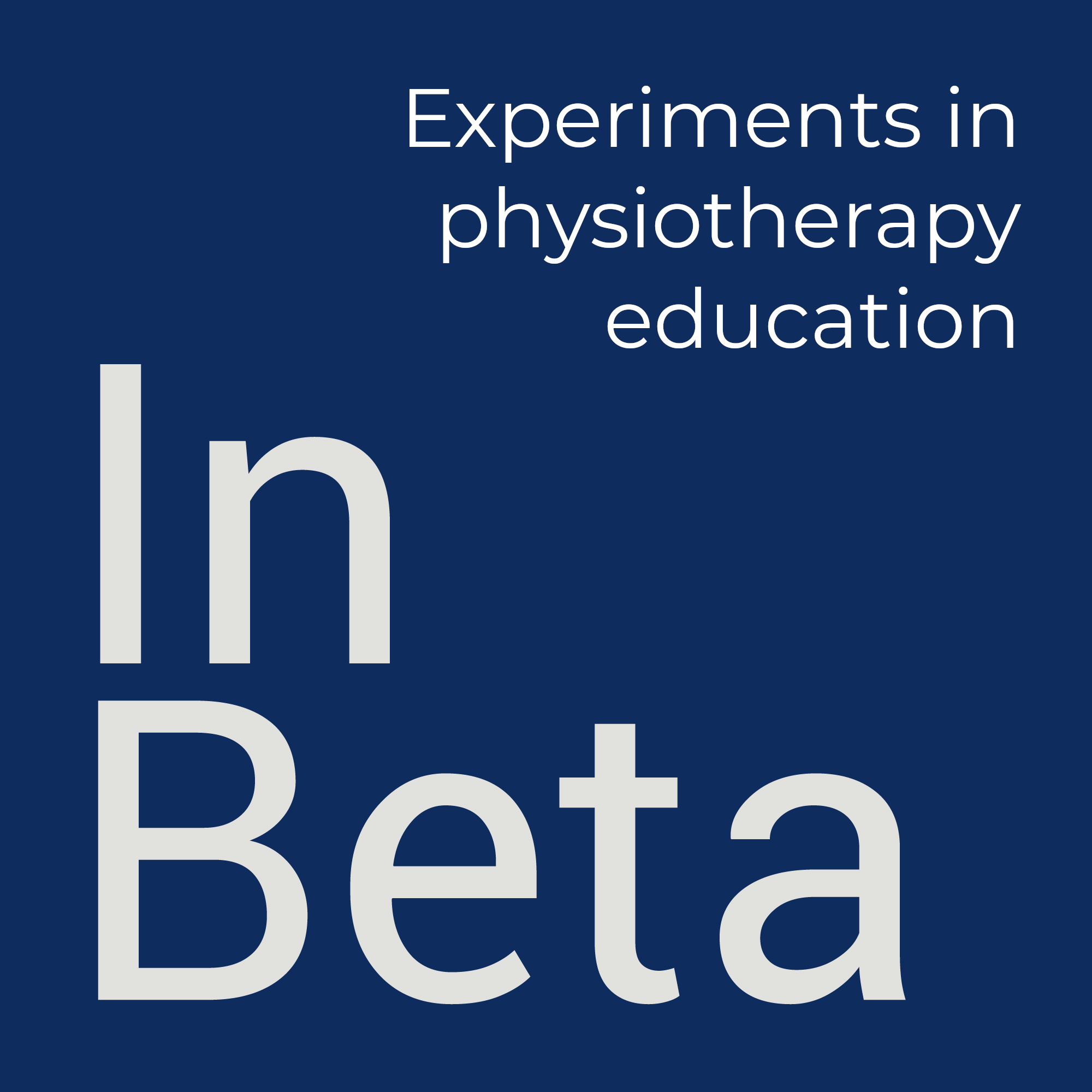This episode is one in a short series on different ways of thinking about physiotherapy education, published as part of the In Beta 2020 Unconference.
Thanks to Shaun Cleaver from McGill University (Canada) for preparing this episode.

When babies are born in the dry season this is also the time of the birth of the dragonfly, which hums and buzzes around the air, excited about the birth of the new season. The grandmothers catch the dragonflies to test babies’ hearing, making them buzz near the babies’ ears. When a baby responds, we know that they have good hearing. If not, the old ladies, bring the dragonfly closer so the baby can feel the vibration and sound of its wings, then they sing to the spirits and the dragonfly, ‘We all must look after this child together to help him to grow and be able to communicate’. So, if you see a dragonfly buzzing around a baby, it is just looking and checking the baby’s response because that’s what they do. In the past, everyone worked together – dragonflies, grandmothers and the spirits.
Ngummama – Dragonfly (Norma Benger)
“Colonisation” and “imperialism” – these are not words that are commonly heard within physiotherapy education programmes. And yet, these forces are major factors that shape possibilities for individuals and peoples in the modern era. Because of the embedded and pervasive nature of colonisation and imperialism, it can be difficult to identify these phenomena, let alone confront them. Colonisation and imperialism are premised upon violence and domination, producing devastating effects on human health and well-being.
This episode will take listeners through a series of issues related to two main points:
- the conscientisation of listeners to the realities of colonisation and imperialism, and
- the location of the self in these dynamics.
The episode relies primarily on narrative, with intentional emphasis on personal perspectives of societal and structural phenomena. Increasingly, through the podcast sections, the content threads connections to the physiotherapy profession in general and physiotherapy education specifically.
Progressing in sections, the podcast guides listeners through reflections on:
- Who are my people? What is our relationship to the place that we call home?
- Whose stories are heard?
- Things that are skin … deep
- It is in our heads
- Structure precedes function
- Are we sure that physiotherapy “fits” everywhere? A question derived from professional experience in Haiti
- What would decolonising physiotherapy education look like?
Transcript: Click here to download a transcript of the episode.
Additional resources
- Piggot, J. (2017) Introducing Myself. Medium.
- Hojjati A, Beavis ASW, Kassam A, Choudhury D, Fraser M, Masching R,. Nixon SA. (2018) Educational content related to postcolonialism and indigenous health inequities recommended for all rehabilitation students in Canada: a qualitative study. Disability and Rehabilitation, 40:26, 3206-3216.
- Tuck, E., & Yang, K. W. (2012). Decolonization is not a metaphor. Decolonization: Indigeneity, education & society, 1(1).
How to engage with this podcast
- Listen to the podcast taking breaks in between sections as you wish.
- Record your key reflections and share these with other participants.
- Join a discussion with other unconference participants on the topic and the reflections that it has stimulated.
This podcast is around 57 minutes long. It includes some discussion to make you think about the possible future of physiotherapy education and reflect on your responses. We suggest that you listen to the podcast away from your desk. You might choose to listen whilst you go for a walk or a run in your local area, or you could find somewhere to sit and listen quietly away from other screens and distractions.
The podcast is divided into different sections with approximately 1-min silence in between each section. You can leave the podcast running and listen to it all in one go, or you can pause the podcast during these pauses to make brief notes on your thoughts as you go, but you don’t have to record and share your response to every question. Instead, aim to capture the key reflection that you took away from the experience.
At the end of the podcast, aim to capture your key reflections in a way that they can be shared with other participants. You can choose to do this however and wherever you wish. It could be as a video, in writing, a series of pictures and could be saved as a note on your phone, a Google doc, a blog, a series of tweets, or a video on YouTube.
Once you have created your brief reflection on the podcast, please share it by posting it, or a link to it on the relevant padlet on the Unconference Canvas page by 13.30am UTC on September 15th.
After sharing your reflection, take a look at the reflections from other participants to gain different perspectives on the topic. These will form the stimulus for the synchronous discussion on the 15th September at 14.30am (UTC). To join the conversation click the relevant link on the Canvas page at the appropriate time.
Featured image and opening story by Norma Benger via Australian Indigenous HealthInfoNet.

